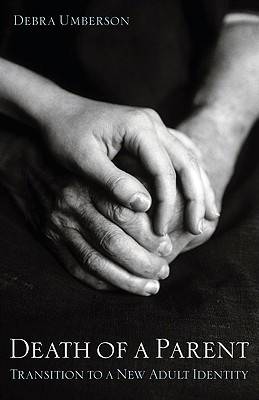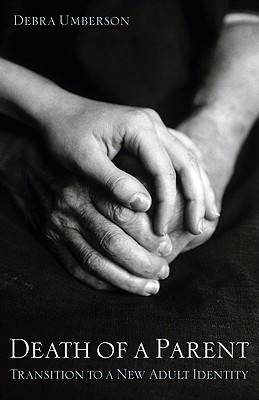
- Retrait gratuit dans votre magasin Club
- 7.000.000 titres dans notre catalogue
- Payer en toute sécurité
- Toujours un magasin près de chez vous
- Retrait gratuit dans votre magasin Club
- 7.000.0000 titres dans notre catalogue
- Payer en toute sécurité
- Toujours un magasin près de chez vous
Death of a Parent
Transition to a New Adult Identity
Debra Umberson, Allan Kellehear, Umberson Debra
Livre broché | Anglais
41,95 €
+ 83 points
Format
Description
In the midst of the busiest years of our lives and careers, just as many of us are beginning to confront our own aging, we are likely to lose a parent--and as commonplace, even expected, as any such event may be, the reperscussions can be dramatic. This book sets out in clear and comprehensive terms what the death of a parent means to most adults--how it in fact functions as a turning point in our emotional, social, and personal lives. Drawing on her own groundbreaking research, in-depth interviews, and data collected nationwide, Debra Umberson explores the social and psychological factors that determine how this important loss will affect us--as a personal crisis or an opportunity for healthy change. Her book shows how adults, far from the "finished" beings we are often assumed to be, can be profoundly transformed by the death of a parent--in beliefs, behavior, goals, sense of self--transformed in ways that will continue to affect us, for better or worse, for the rest of our lives. Debra Umberson is Professor and Chair of Sociology at the University of Texas at Austin. She is the only scholar to have published on the topic of parental death in adulthood using national data, and her resume includes 36 published articles and chapters in leading academic journals and books on family and health topics. Dr. Umberson has received many awards. She won an award for her research for Death of a Parent from FIRST Award from the National Institute on Aging. Umberson's newest research, which is also sponsored by the National Institute of Aging, focuses on how marital quality changes over the life course. Umberson is currently serving as an elected officer of both the Mental Health Section and the Medical Sociology Section of the American Sociological Association (the national professional association of sociologists in the United States). She has served as deputy editor of the Journal of Health and Social Behavior and associate editor of the Journal of Family Issues. She is currently associate editor of Journal of Marriage and the Family.
Spécifications
Parties prenantes
- Auteur(s) :
- Editeur:
Contenu
- Nombre de pages :
- 264
- Langue:
- Anglais
Caractéristiques
- EAN:
- 9780521012966
- Date de parution :
- 30-10-06
- Format:
- Livre broché
- Format numérique:
- Trade paperback (VS)
- Dimensions :
- 141 mm x 222 mm
- Poids :
- 331 g

Les avis
Nous publions uniquement les avis qui respectent les conditions requises. Consultez nos conditions pour les avis.






